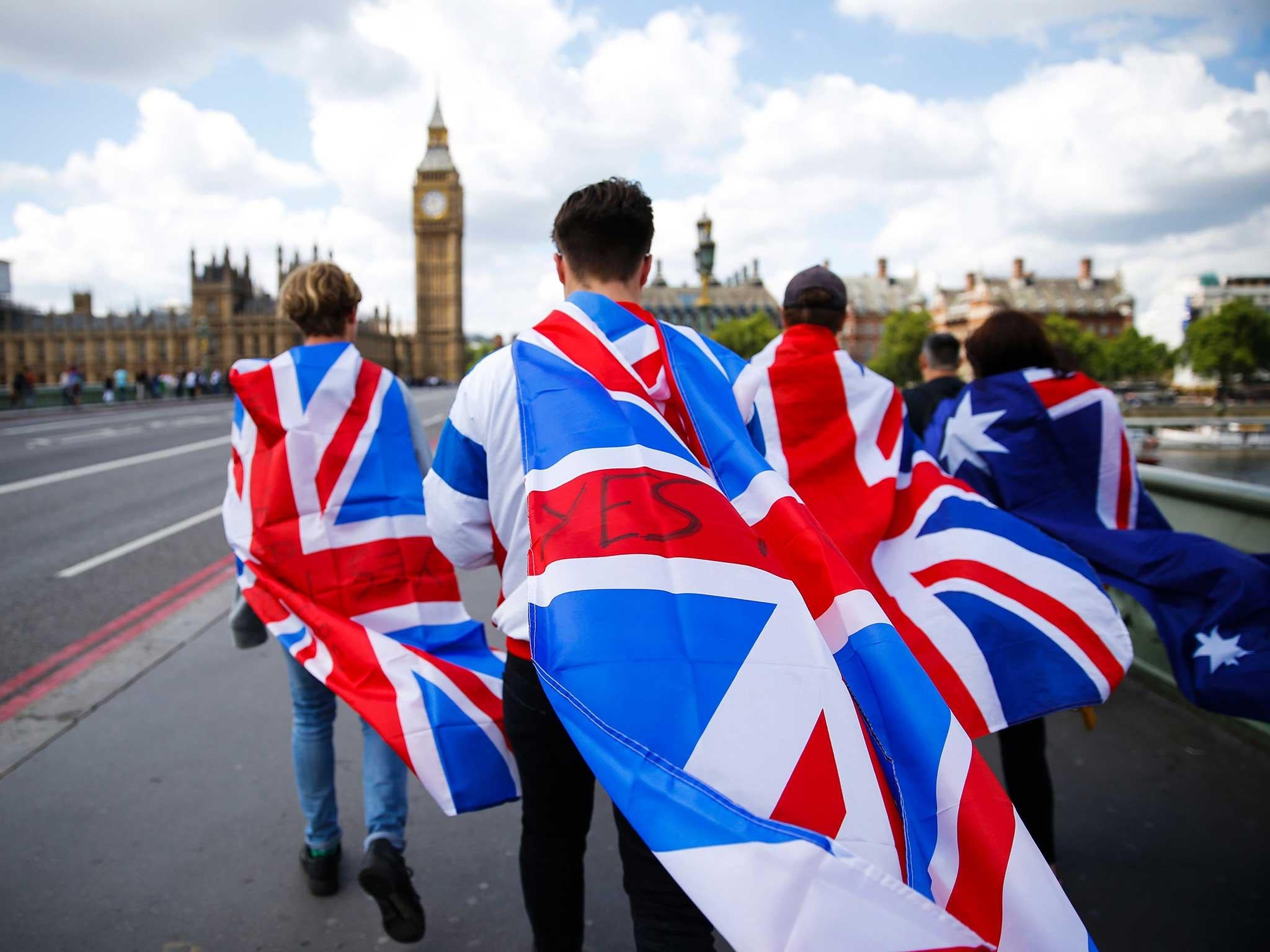Britain, you never realised how powerful you were in the EU. You should have learned from what happened to my country
I had the doubtful pleasure to witness a similar political farce in Norway - and it didn't lead to anything like the utopia you imagine

The UK made its choice, and it was not to “make Britain great again”, as the Daily Star called for on its front page the day after the referendum.
The call from the Daily Star is interesting, as it seems to imply it did not find Britain particularly “great” before this referendum. In fact, the UK is a great European country both economically and culturally, although it now appears to be in denial.
The Empire is gone; the Commonwealth is but a shadow. Britannia has not “ruled the waves” for a good long while – Europe’s biggest ports are Rotterdam, Antwerp and Hamburg.
Yet Britain was great in the European Union. Not only because of its openness, its connections around the world. It was great in its cool, pragmatic, analytic approach to global challenges, which the EU will now have to work hard to replace. The UK’s struggle for a flexible economy contributed in a crucial way to a balanced EU approach. Britain’s global standing gave Europe leverage on the world stage, and the EU in turn gave leverage to that standing.
Brexiteers argued that unshackled from the EU, Britain would reclaim its influence globally. But that influence was in large part justified by the EU. Britain’s veto in the UN Security Council may now be questioned for real, as the UK can no longer claim to also speak on behalf of half a billion Europeans. The French veto will now be the only EU veto, its justification therefore strengthened. But why shouldn't Brazil, rather than the UK, enjoy such a veto, with three times as many inhabitants? More, if Scotland leaves.
Could Little England really justify retaining a UN Security Council veto?
If the Scots do leave, which now does not seem unlikely, England and Wales, possibly with a torn Northern Ireland on board, would be in even worse shape to negotiate their ‘Better Deal’ with the EU. With Captain Cameron having abandoned ship, said negotiation is likely to be led by Boris Johnson, the man who ten days ago compared the EU with Nazi Germany. Surely, that must gain him credibility and goodwill aplenty, notably from Britain’s arguably strongest ally in the EU, the Germans.
The Brexit campaign has framed Johnson as an authority on the EU and Brussels given his years as a journalist there, implying that he knows how to play the game. Based on what his former colleagues from the time say about him, they must now hope that he can deceive his way to the promised “better deal”, just like he’s deceived his own British people about the EU for a quarter of a century. To be fair to him, if his aim was to become prime minister, he’s doing quite well. If however his aim was to lead his country to prosperity, his performance is questionable. He might have to apologise yet.
I had the doubtful pleasure to witness a similar political farce in my own country Norway, which led us into the blissful denial in which we still remain. Thanks to vast petroleum resources we suffered no recession, but we did give up our democratic control in the name of “sovereignty”. I’ve already explained in this newspaper why no EU leader will give the UK a 'better deal', and why a Norway-style Brexit cannot be a real option for Britain. That remains no less true if the Scots go their own way and remain in the EU – it would only be even more humiliating. The painful reality is that there’s no better deal to be had now.
I was 12, turning 13, but remember Norway’s 1994 EU referendum all too well. The surge of nationalism, fuelled further by the successful Lillehammer Olympics, and an irrational antagonism toward our European allies and neighbours. I was still too young to vote, and never got a chance since. I dare hope better for Britain’s young.
For a while, I led the European movement in my hometown Trondheim, and received anonymous letters with threats and accusations of me “trying to give away what the Germans failed to keep in 1945” when writing op-eds in the regional newspaper. I’ve spent two decades watching my country's denial of our de facto membership without a say. Yet through my current job at the Norwegian NGO Bellona, which established itself in Brussels when Norway did not, I got the chance to influence that which my country refused. So too can young Brits who wish Europe (and their country, for it remains in Europe regardless of the EU membership) well, and I hope they still will. Europe and Britain needs them now more than ever.
Nigel Farage infamously said Britain has now won its independence without a single bullet fired.
Well, no guns were pointed your way. You have made your free, democratic choice to leave, your old against your young. It’s a divided nation that now moves into uncharted waters that no-one asked you to enter.
Already, at the time of writing this, more than three milion have signed a petition for another referendum. No one will stop you from leaving, most certainly not with violence. But, I would like to add, many of us will grieve to see you go in this fashion.
England and Wales have elected to be splendid not in isolation, but in illusion.
Let’s see what’s in store for Brave Scotland.

Join our commenting forum
Join thought-provoking conversations, follow other Independent readers and see their replies